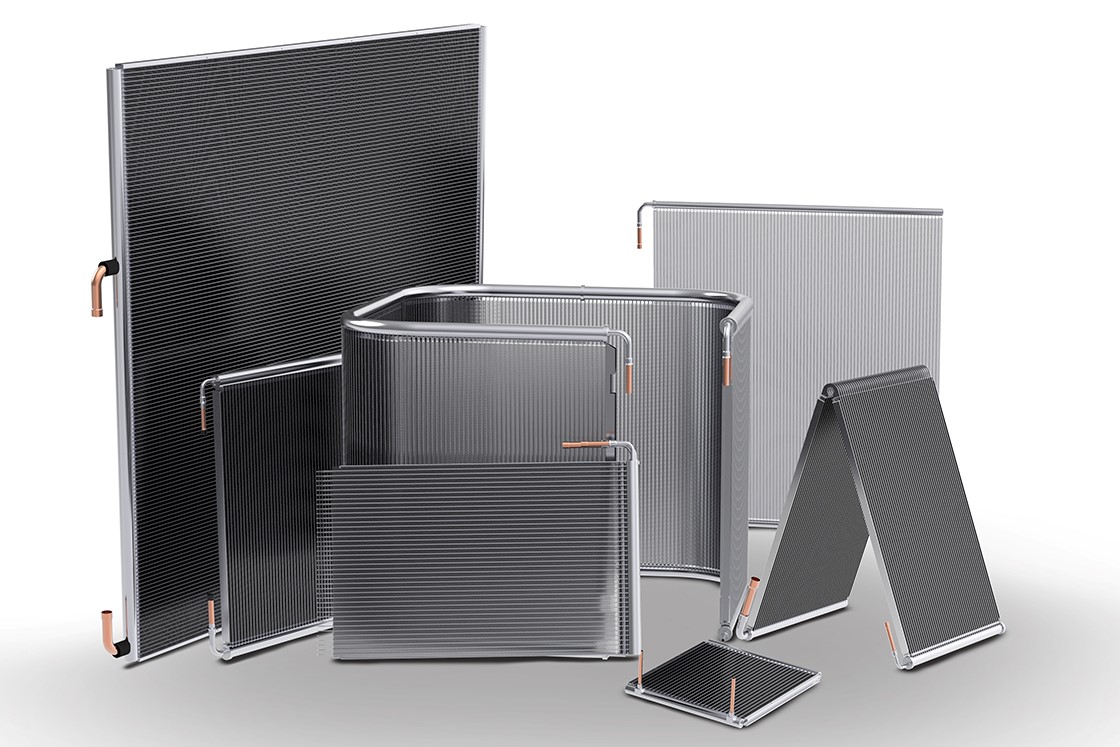
- Danfoss commits to at least 10% (by volume) of all primary aluminum procured annually to be low-carbon by 2030.
- The coalition is led by World Economic Forum and the U.S. Department of State, comprising 82 members, all global players in their markets.
- The aluminum industry generates more than 1.1 billion tons of CO2e (carbon dioxide equivalent) emissions annually – around 2% of global emissions.[i]
The World Economic Forum has announced that Danfoss has joined the First Movers Coalition (FMC), a global coalition to decarbonize hard-to-abate industries. Danfoss joins the FMC aluminum sector, committing that at least 10% (by volume) of all the company’s primary aluminum procured per year will be low-carbon by 2030. Additionally, Danfoss commits to ensuring that at least 50% of all aluminum used annually is composed of secondary aluminum by 2030.
As a member of the FMC, Danfoss joins a group of industry players harnessing purchasing power to create a market for low-carbon aluminum, sending a strong market demand signal for the emerging technologies essential for a net-zero transition. This commitment by members focuses on creating a sustainable value chain for aluminum and achieving a 50% reduction in CO2 emissions from primary aluminum production by 2050. Danfoss has already entered into negotiations and begun contractual agreements with suppliers for low-carbon aluminum.
Jürgen Fischer, President, Danfoss Climate Solutions, says: “Our customers are increasingly demanding products with a lower carbon footprint – and they’re right to do so. By joining the First Movers Coalition we are responding to this demand by fostering the critical development of low-carbon aluminum production, and thereby accelerating its entry to market. Being part of the coalition also aligns with our own commitment as a leader in the green transition, to achieve carbon neutrality across Danfoss’ global operations by 2030 and to reduce our value chain emissions by 15% by 2030.”
Rob van Riet, Interim Head, First Movers Coalition, said: “We are thrilled to welcome Danfoss to the First Movers Coalition, and are eager to work together towards the scaling up of the low-carbon aluminum market globally. Our joint focus will be on surfacing solutions to decarbonize aluminum and accelerate their deployment with committed organizations like Danfoss, aiming to bring these solutions to commercial scale.”
Led by the World Economic Forum and the U.S. government, the FMC targets hard-to-abate sectors including aluminum, aviation, chemicals, concrete, shipping, steel and trucking, which are responsible for 30% of global emissions. For these sectors to decarbonize at the speed needed to keep the planet on a 1.5-degree pathway, they require low-carbon technologies that are not yet competitive with current carbon-intensive solutions.
FMC member companies commit to purchasing a percentage of near-zero or zero-carbon solutions from suppliers, which may come at a premium cost. If a critical mass of global companies commit a certain percentage of their future purchasing to clean technologies in this decade, this will create a market tipping point that will accelerate their affordability and drive long-term, net-zero transformation across industrial value chains. The FMC is currently composed of 82 members, all global players in their markets.
The aluminum industry generates approximately 2% of global emissions[ii], but it also has the strongest potential to become carbon negative by 2050. Switching to low-carbon electricity is the biggest step the industry can take to deliver a sector compatible with net zero targets.[iii]
Danfoss has committed to achieve CO2 neutrality in its global operations (Scope 1 & 2) by 2030 – supporting the business ambition to limit global warming to 1.5°C, which has been validated by the Science Based Targets initiative (SBTi) and includes a 15% reduction in value chain emissions (Scope 3) by 2030. In addition, Danfoss has a dedicated target of reaching 25% emissions reduction from its suppliers by 2030 compared to the 2019 baseline. This commitment reflects the Danfoss ESG targets on Decarbonization, Circularity, and Diversity, Equity & Inclusion.
Already Danfoss has seen progress in decoupling environmental impact from business growth by delivering a 7% decrease in Scope 1 and 2 emissions while growing 15% organically in 2022.
Read more about Danfoss’s ESG ambition here: Environmental, social, and governance (ESG) | Danfoss
More information about the First Movers Coalition can be found here: First Movers Coalition
About Danfoss A/S:
Danfoss engineers solutions that increase machine productivity, reduce emissions, lower energy consumption, and enable electrification. Our solutions are used in such areas as refrigeration, air conditioning, heating, power conversion, motor control, industrial machinery, automotive, marine, and off- and on-highway equipment. We also provide solutions for renewable energy, such as solar and wind power, as well as district-energy infrastructure for cities. Our innovative engineering dates back to 1933. Danfoss is family- and foundation-owned, employing more than 42,000 people, serving customers in more than 100 countries through a global footprint of 95 factories.
[i] WEF_Aluminium_for_Climate_2020.pdf (weforum.org)
[ii] WEF_Aluminium_for_Climate_2020.pdf (weforum.org)
[iii] Aluminium Sector Greenhouse Gas Pathways to 2050 - International Aluminium Institute (international-aluminium.org)
